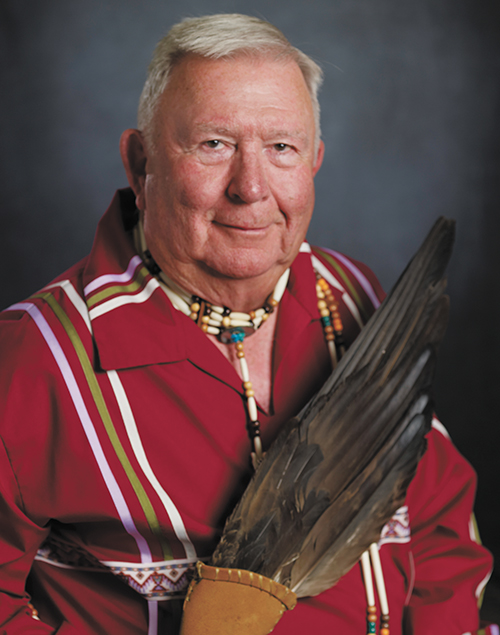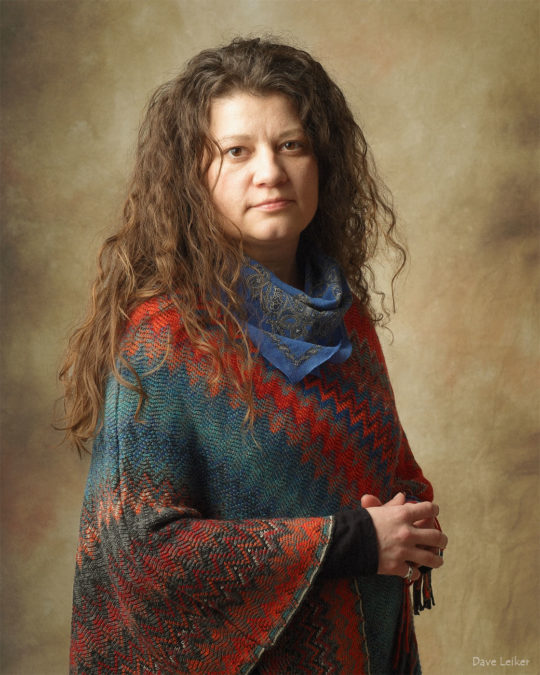District 4 candidates

Jon E. Boursaw – Wetase Mkoh (Brave Bear)
What is something you hope to accomplish during your first (or next) term?
My biggest problem as a Legislator outside of Oklahoma is the inability to communicate with the majority of members in District 4. If re-elected my goal over the next 4 years is to expand my contact with and availability to CPN members in District 4 through a variety of means in order to answer their questions, meet their needs, keep them informed of tribal events and activities, announce new services and updates to existing programs. I plan to use the following to accomplish this: social media, dedicated email; direct mail, my Hownikan column; increase in the number of District meetings, including new locations and being available in my office.
CPN’s Tribal enrollment grew by historic numbers in 2020. How do you propose that the Tribe engages and serves its growing population?
How the Tribe engages and serves it members in future years will be severely impacted by the continued increase in enrollment. I’m not a statistician but I did a simple comparison of growth over the past 5 years. In 2016 Tribal Rolls reported the enrollment was 30,695 and just recently I was told the current enrollment is 36,317, with several hundred waiting to be approved. That equates to a 20% increase in 5 years. Assuming the same 20% growth continues every 5 years my projection is that in 2036 enrollment will be slightly over 60,000 members. Remember many of the members who are older teenagers or young adults now will be adding their own children to the rolls in the next 10–15-year span.
To meet the needs of the members and continue to provide the services we currently offer the Tribe must aggressively strive to expand economic develop projects which will return substantial revenue to the Tribe. In addition, we must ensure existing tribal enterprises, like the grocery store, casinos, hotel, and golf course, are being effectively managed to maximize their return to the tribe. This tribal revenue is what funds services and benefits such as Scholarships, Mail Order Pharmacy, Health Aids, the Hownikan and the Burial Fund. Likewise, those tribal programs which provide non-revenue producing services will need to perform their functions in the most efficient and economic method possible.
The oversight of this need for expansion of economic develop projects is the responsibility of the CPN Legislators. It is their role to ensure these projects will serve the Nation in accordance with Federal, State and Tribal laws and regulations.
Bottomline, before we consider increasing, expanding or adding new tribal funded services or benefits we must consider what will be the impact in 7, 10 or 15 years and beyond. Remember once you offer a service or benefit it is almost impossible to take it away.

Elexa “Amo” Dawson
What’s something you hope to accomplish during your first (or next) term?
My main priority will be community, and I hope to reestablish a culture of gathering, sharing of food, speaking our language, learning, and doing ceremony together. I want to see our families connecting, supporting and encouraging each other. The loss of our culture through assimilation into individualism has affected our families in many negative ways. When it comes to language and culture, there is no replacement for community. I hope to facilitate the strengthening of our families and Nation through relationship. Planting days, community gardens, musical concerts, camping getaways… These are some of my ideas that I’m already implementing, and I will continue to organize in the community whether as legislator or as citizen. Please join us April 24th, at Canning Creek Cove, Council Grove Lake, Kansas.
CPN’s Tribal enrollment grew by historic numbers in 2020. How do you propose that the Tribe engages and serves its growing population?
First, welcome to anyone who is a new citizen of CPN! You belong. We are all in different stages of learning what it means to be Potawatomi. Our culture, including our language, food, clothing, lifeways and values, is practiced in community, and is the only thing that distinguishes us as Potawatomi. The need for connection to elders and peers has been repeated over and over by those who are reconnecting with the Nation and looking to find their place in it.
I have always loved our summer festival, but one gathering annually is not enough to maintain our cultural connections. Each legislator can commit to building stronger connections within the community by hosting and funding language and cultural classes and gatherings.
We stay connected when we grow food and tend fires and share meals together. Food is the quickest and most enjoyable way to introduce someone to their culture, because it demonstrates the connections we have with our relatives, the plants and animals, and it allows us to practice our roles in the community. Also, our traditional foods are delicious! We have seeds in the community who fed our ancestors, and who are coming back to us, and gardeners can become acquainted with them. We have artists coming into the community, learning about their culture through relationship, and creating from that inspiration. I’m glad we’re growing and will continue to play my part in facilitating connection and encouraging others to do the same.
